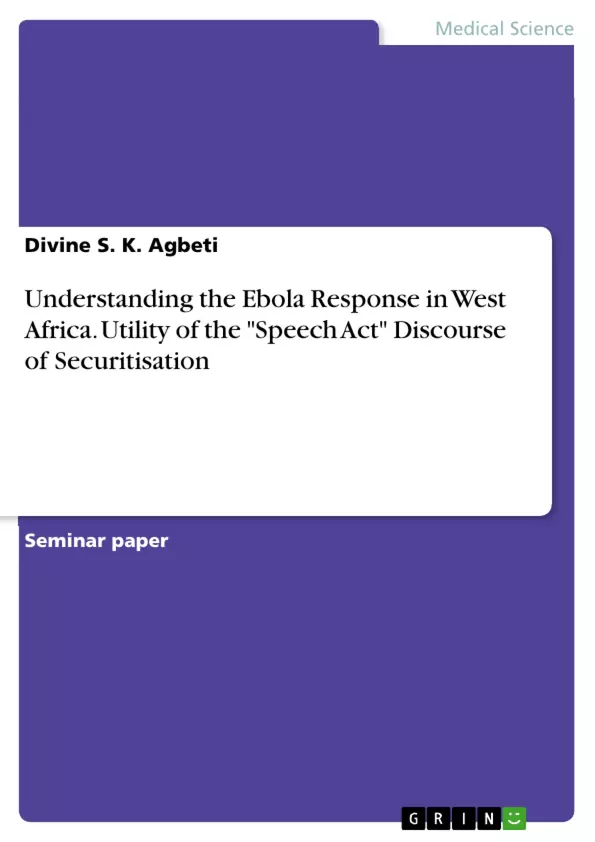This study argues that the Copenhagen School’s conceptualisation of global security tends to favour a ‘negative’ version of security, fathomed as security from existential threats, supporting the traditional notion of security as survival. This isolates health issues from their systemic causes, instigating responsive mechanisms rather than preventative policies. Accordingly, substantial attention and resources are directed towards communicable, rather than non-communicable and chronic, diseases.
The study also claims that this way of conceptualising security conjures the understanding of health via the prism of state interests, as pandemic and communicable diseases are perceived to pose potential threats to state security. Thus, securitisation practice bequeaths priority to state security over human security, and therefore fails to tackle the structural causes of global health inequalities that produce and reproduce these pandemics.
This study is divided into two parts: the first critically analyses the theoretical framework of securitisation. It methodically examines securitisation assumptions of Barry Buzan, Jaap de Wilde and Ole Waever (1998); the strengths of the securitisation framework, particularly in securitising health; and limitations of the securitisation theory to understanding global health issues. These analyses set the context for the second part of the study, ‘Ebola case study in West Africa - Guinea, Liberia, and Sierra Leone’. The Ebola case study particularly demonstrates that global health issues only become security priorities when Western countries feel threatened, most especially when coined as a national security threat to the US and the UK.
Inhaltsverzeichnis (Table of Contents)
- Introduction
- Speech Act Discourse and Securitisation
- Strengths and Limitations of Copenhagen School
- Understanding the Ebola Response in West Africa: Background
- From a West African Problem to a Western Problem
- Global Response
- Ebola Mitigation Measures
- Conclusion
Zielsetzung und Themenschwerpunkte (Objectives and Key Themes)
The research aims to explore how critical security scholars, specifically the Copenhagen School, contribute to our understanding of security in International Relations. It utilizes the recent Ebola pandemic in West Africa to examine the limitations of securitisation theory, particularly for global health issues.
- The Copenhagen School's 'negative' version of security, focused on existential threats and traditional notions of survival.
- The tendency of securitisation to isolate health issues from their systemic causes, emphasizing reactive responses rather than preventative measures.
- The framing of health issues through the lens of state interests, with pandemics perceived as threats to state security.
- The prioritization of state security over human security, neglecting structural causes of global health inequalities.
Zusammenfassung der Kapitel (Chapter Summaries)
The first part of the study delves into the theoretical framework of securitisation, critically analyzing its assumptions, strengths, and limitations in the context of global health issues. The second part, "Ebola case study in West Africa - Guinea, Liberia, and Sierra Leone," demonstrates how global health concerns only become security priorities when Western countries perceive a threat, particularly when framed as a national security threat to the US and UK.
Schlüsselwörter (Keywords)
The study focuses on the securitisation discourse in International Relations, with key themes revolving around the Copenhagen School, health security, the Ebola pandemic in West Africa, and the limitations of securitisation theory in addressing global health issues.
- Quote paper
- Divine S. K. Agbeti (Author), 2015, Understanding the Ebola Response in West Africa. Utility of the "Speech Act" Discourse of Securitisation, Munich, GRIN Verlag, https://www.hausarbeiten.de/document/345046


